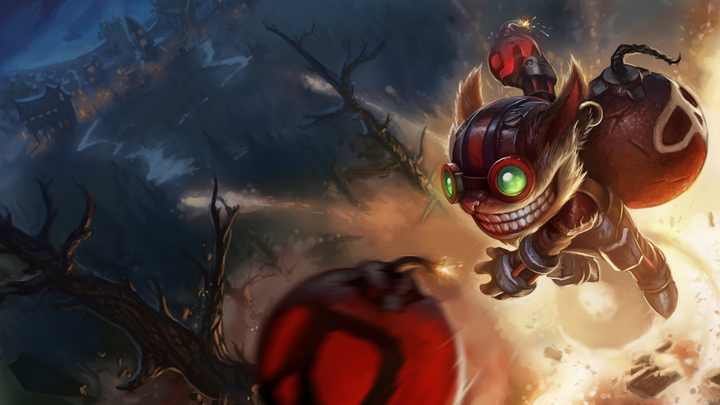2020 is the tenth anniversary of League of Legends, and one would imagine that it would be filled with celebration. However, nothing could be further from the truth. The festive mood built after Riot’s announcement new games to come was quickly brought down in the wake of COVID-19. Lockdowns have led more players to partake in League of Legends, and greater criticism has come down upon the game.
Many have already criticized the client itself, while an older concern has risen to the forefront again: the company’s inability to fix issues in solo queue, particularly around the areas of game-ruining behaviour such as toxicity, trolling, AFKs, and more. Indeed, it’s indicative of Riot’s most persistent issue: it is unable to hold people accountable within League of Legends, whether it be small players or larger streamers.
A series of dev blogs have focused on Riot's work to make solo queue more playable. (Picture: Riot Games)
The most recent wave of attention to this issue began with a video from Voyboy, discussing the trend of increasing solo queue toxicity. The floodgates opened from there, and the community let rip with the prevailing though being that solo queue needed to be “fixed.”
Valorant, a game only recently out of closed beta, has implemented a code of conduct, so why can’t League of Legends a game over 10 years old?
Riot attempted to placate its player base by announcing short-term changes. “In the near future we’ll improve how report feedback works and introduce reporting in Champ Select,” Andrei “Meddler” van Roon, Design Director for League of Legends, wrote in a developer blog.
“In the moderate term we’ll test more responsive detection of deliberate inting/pseudo afking. We’re still considering steps after that but the plan is to keep working on this longer-term. We’ll keep you updated each month on how internal progress and tests being run in specific regions are going.”
Meddler, has released a second update that showed the findings of some post-game surveys it had sent out to players, statistics of improved report notifications, and a statement about their current system.
“Our detection algorithms are too basic, over-relying on things like raw number of deaths per game and player reports,” Meddler admitted. “If a player says they’re going to AFK or feed, then does so, we should be much more confident in penalizing them quickly even if they don’t have a history of such actions.”
The stance of game-ruining behaviour is one that Riot Games has held for some time. The following Tweet by Riot Games showed their stance against all game-ruining behaviour - including smurfing, the practice of creating a new account and winning at lower elos. However, there’s a strong contradiction between Riot’s words and its actions.
The climb takes a lot longer now. This is intentional. We really don't want players creating alt accounts just to blow through the climb. We encourage players to stay on their mains. Smurfing ruins the game experience for others. ~Yadon
— Riot Games Support (@RiotSupport) February 17, 2020
Yet when it comes to game-ruining behaviour and toxicity, few names are bigger than that of Tyler “Tyler1” Steinkamp, one of the biggest League of Legends streamers today. Only two weeks ago, a video surfaced of him motionless in fountain, AFKing. He knows to well that Riot finds it difficult to punish him, as the company has already banned him once and doing so again would reflect badly. Furthermore, Tyler1, as one of League of Legends biggest personalities brings a huge wide audience to the game.
Without his viewers, there are fewer people watching League of Legends. It’s something Riot doesn’t want to lose, but it comes at a cost of their reputation in regards to holding holding people accountable.
Tyler1 knows this all too well. Two days ago, he flaunted this privilege by telling another player “we arent equal” in the chatbox in response to a player’s complaint of Riot’s unequal treatment of toxicity.
Whatever steps Riot takes from here on, it is clear that until it is able to provide equal treatment to each of its community members -- big or small -- the issues it faces with solo queue will continue to persist.

 No ads, our video library,
No ads, our video library,


